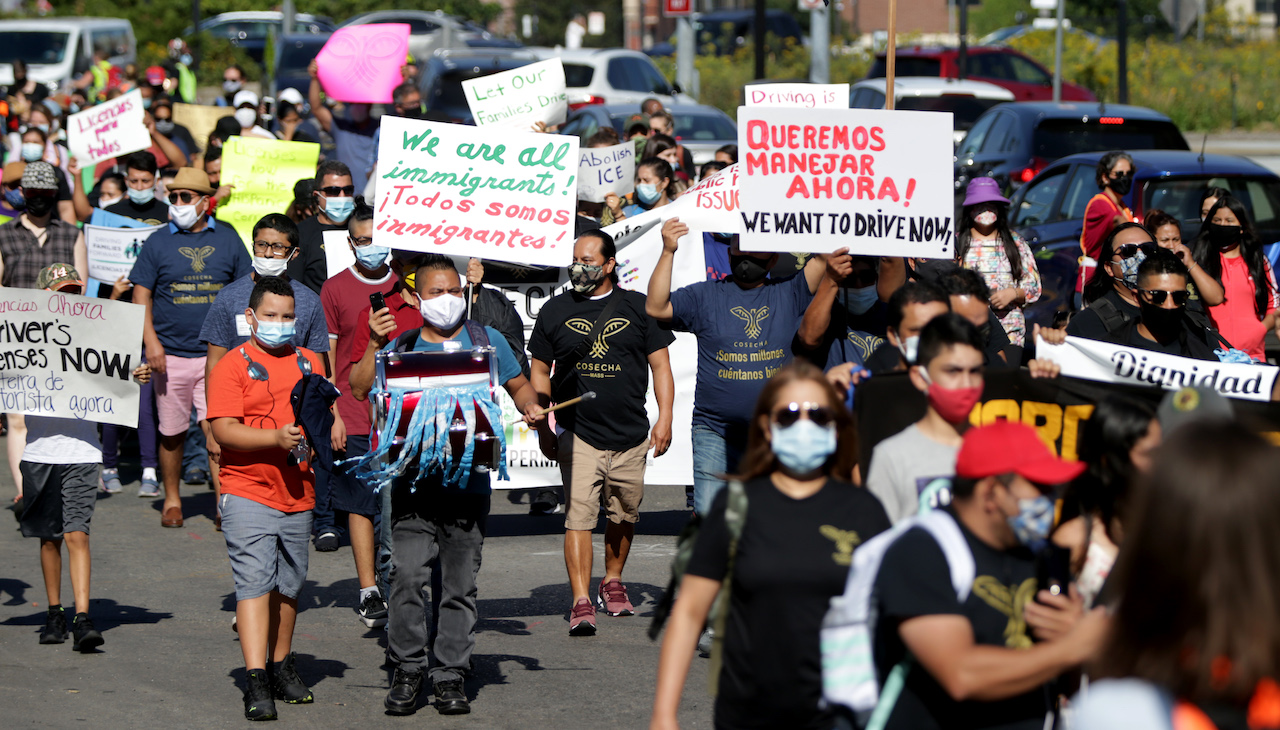
Massachusetts voters will decide fate of immigrant driver's license law
The law makes undocumented individuals eligible for driver licenses.
As the November elections get closer, states across the country are adding new measures on ballots for voters to decide their ultimate fate. For instance in Michigan, an abortion rights policy got a place on the ballot. And now, as first reported by WBUR, Massachusetts will also hand over deciding power to its voters this Fall on a measure that will decide if undocumented immigrants are eligible for driver licenses under certain requirements and documentation.
Officially called the Work and Family Mobility Act, Massachusetts voters will be able to ‘yes’ or ‘no’ on the November ballot.
Per the official law: “An applicant for a license under this section who does not provide proof of lawful presence, including an applicant who is ineligible for a social security number, shall be eligible for a Massachusetts license to operate a motor vehicle if the applicant meets all other qualifications for licensure and provides satisfactory proof to the registrar of their identity, date of birth and Massachusetts residency.”
“When processing an application for a Massachusetts license pursuant to this section the registrar shall not inquire about or create a record of an applicant’s citizenship or immigration status. When processing an application for registration or renewal of a motor vehicle submitted by an applicant who holds a Massachusetts license the registrar shall not inquire about or create a record of an applicant’s citizenship or immigration status,” the law continues.
Sarang Sekhavat, of the Massachusetts Immigrant and Refugee Advocacy Coalition told WBUR that the policy is not just there to serve the immigrant but that it has a positive effect on the entire commonwealth.
“Ensuring all Massachusetts drivers meet the necessary identification, registration and testing requirements for driving just simply makes the roads safer,” he said.
Massachusetts Governor Charlie Baker vetoed the policy back in May, but it still passed in June following the Senate and the House voting to override Baker’s veto. If voters in November vote to not overturn the law, it will officially go into effect in July 2023. In his veto message Baker expressed concern that the bill "significantly increases the risk that noncitizens will be registered to vote," a possibility that bill supporters have refuted.
The governor said the bill "restricts the Registry's ability to share citizenship information with those entities responsible for ensuring that only citizens register for and vote in our elections."
“We're creating a tremendous opportunity that it could be abused for purposes for which it is not intended—It also creates an incredible threat to the integrity of the electoral process,” Baker continued.
RELATED CONTENT
Other opponents of the bill include chair of the Massachusetts Republican Party Jim Lyons, who argues that driving is something to be earned.
“The rule of law matters,” he said. “People that are in the country illegally should not be rewarded for their behavior by getting a driver’s license.”
Springfield Democrat and policy supporter Sen. Adam Gomez’s response to the initial veto was once of concern for undocumented parents carrying out everyday tasks under the risk of being pulled over and detained.
“Allowing parents to drive their kids to school, take them to doctor's appointments or be in charge of carpooling to take their kids to soccer, all without the concern they may be separated if they are pulled over, will allow children of undocumented immigrants to breathe and have a sigh of relief,” he said.
On June 9, 2022, the Massachusetts House voted successfully to override the governor’s veto in a vote of 32-8. Massachusetts, D.C., and 16 other states have similar laws in place.
At the time, Elizabeth Sweet, the executive director of the Immigrant and Refugee Advocacy Coalition also reacted negatively to Baker’s veto.
“We are deeply disappointed that Governor Baker has vetoed the Work and Family Mobility Act,” she said. “The policy would not only make our communities safer, but benefit our economy and bolster trust between law enforcement and immigrant communities. We hope that the legislature will waste no time in overriding the Governor’s veto.”
Now, voters will have a chance at a final say.











LEAVE A COMMENT: